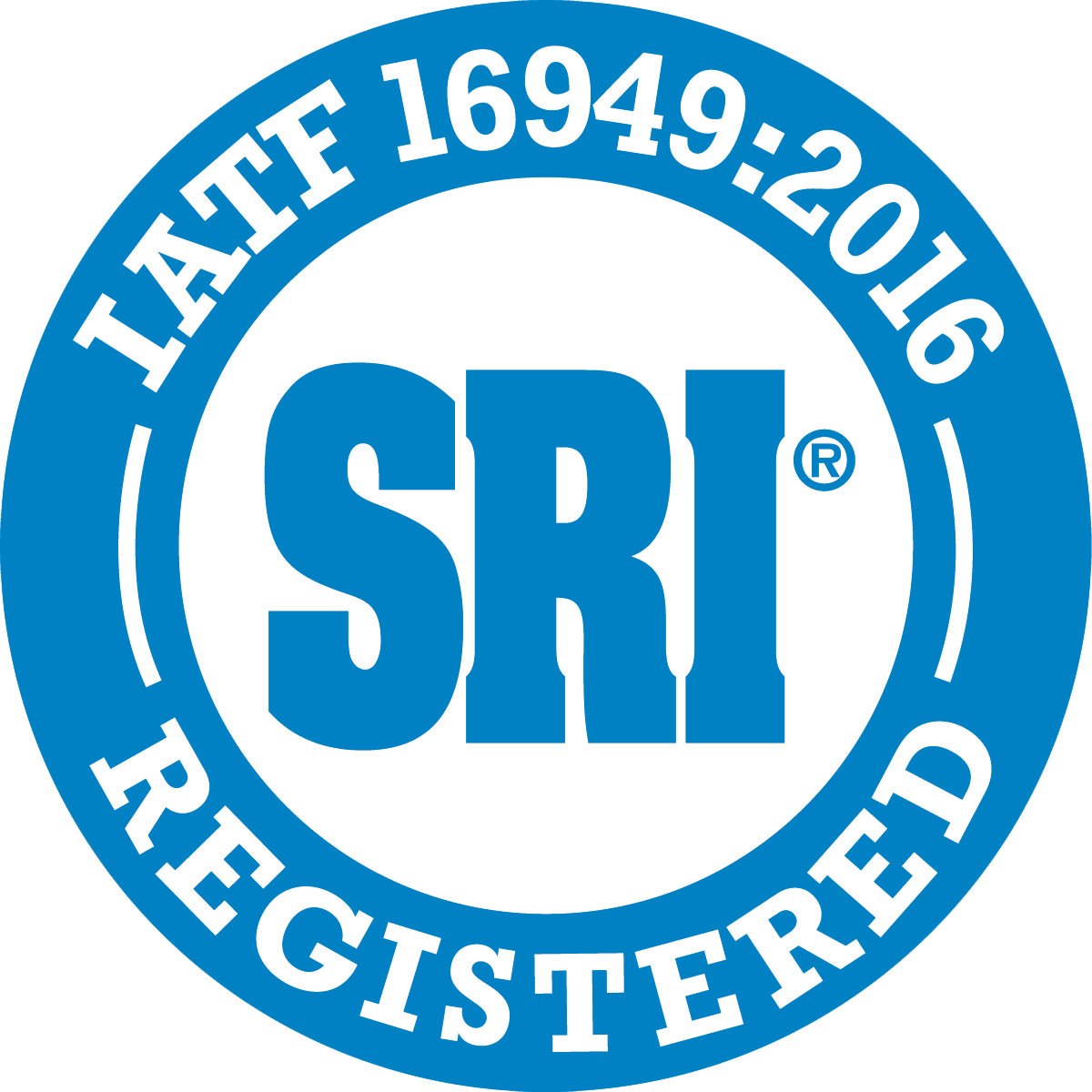Atlas Pressed Metals - Video Gallery
The PM Blend- Episode 10: Machinability in Powder Metallurgy: What It Means for PM Parts
Episode 10 of The PM Blend explores machinability – what it means, why it matters in powder metallurgy, and how machining supports features that cannot be molded into PM parts.
The Atlas team walks through common machining operations, material considerations, tooling choices, and a real-world example involving heavy-duty truck components converted from fully machined parts to PM blanks with machined details.
The PM Blend- Episode 9: Atlas Pressed Metals’ Metallurgical Lab: Precision, Testing, & Quality
In Episode 9 of The PM Blend podcast, the Atlas Pressed Metals team took listeners behind the scenes of one of the most important areas of their facility – the metallurgical lab.
Instead of sending parts out for evaluation, Atlas can run testing and analysis under the same roof where components are engineered and produced.
The PM Blend- Episode 8: Advancements in PM Manufacturing
Episode 8 of the PM Blend podcast explores how automation, robotics, and advanced inspection technologies are reshaping powder metallurgy manufacturing.
Atlas Pressed Metals’ in-house automation engineers share how these innovations improve safety, consistency, and competitiveness while opening new opportunities for the workforce.
The PM Blend- Episode 7: Powdered Metal Materials: Choosing the Right Blend for Your Next Project
Selecting the right powder metallurgy material is critical for balancing performance, cost, and durability. From corrosion resistance to wear strength, every application demands a tailored approach.
In Episode 7 of The PM Blend, Atlas Pressed Metals experts explain how testing, prototyping, and collaboration guide the process of choosing the best powdered metal materials for each project.
The PM Blend- Episode 6: The Benefits of Powder Metallurgy
What really sets powder metallurgy (PM) apart from traditional machining?
In this episode of The PM Blend, Atlas Pressed Metals experts: Mark Powell, Joe Pfingstler, Doug Hanes, Tom Pfingstler, and Phil Parks, break down the key differences in cost, complexity, material use, and design flexibility between these two manufacturing methods.
Packed with real-world examples, material comparisons, and engineering insights, this discussion explores:
How PM can reduce waste and drive cost-efficiency
When PM offers superior design freedom over machining
Practical tips for optimizing part geometry and performance
Whether you're an engineer, buyer, or product designer, this episode is a must-listen for anyone weighing PM vs. machining for their next project.
The PM Blend- Episode 5: Early Collab Matters: Design for Manufacturing With Custom Metal Parts
What makes a powder metallurgy (PM) design truly successful?
In this episode of The PM Blend podcast, Atlas Pressed Metals’ experts — Mark Powell, Joe Pfingstler, Doug Haynes, Tom Pfingstler, and Phil Parks — share how early collaboration between engineers and designers can make or break a PM part.
From real-world examples of design involvement and tooling considerations to the engineering mindset that drives performance and cost efficiency, this episode is packed with insights for anyone involved in product development.
Tune in for practical takeaways, expert advice, and strategies that lead to better PM parts — from concept to production.
The PM Blend- Episode 4: Are Secondary Machining Operations Necessary for Powder Metal Parts?
Atlas experts Mark Powell and Joe Pfingstler take you inside the world of secondary operations in a new episode of The PM Blend podcast, breaking down essential post-processing steps like machining, sizing, plating, steam treating, and resin sealing.
You’ll get a practical look at how each operation enhances part performance — and why they matter more than you might think when it comes to optimizing your powdered metal components.
It’s a quick, no-nonsense guide to making smarter choices on the shop floor and getting more from your PM investment.
The PM Blend- Episode 3: From Line Walks to Part Redesigns: See Powder Metal Conversions in Action
Atlas experts Mark Powell and Joe Pfingstler take you behind the scenes in a new episode of The PM Blend podcast, diving into the ins and outs of powdered metal conversions.
You’ll get a firsthand look at how we walk the production line, the signals we look for, and what truly makes a part a good—or bad—candidate for PM.
It’s a great peek into how our sales and engineering teams collaborate to find the most practical and cost-effective powdered metal solutions.
The PM Blend- Episode 2: - Inside the Furnace: Mastering the Sintering Process in Powder Metallurgy
Looking for a peak behind the scenes of what happens inside the furnace? On this episode of The PM Blend podcast Mark, Joe, Tom, TJ, and Matt break down the sintering process and why it is so important. Join the team as they discuss everything from alloy activation to sinter hardening.
Learn how powder metal parts gain the strength and precision your applications demand.
The PM Blend-Episode 1: How Powder Metallurgy Compaction Shapes Your Part Design
Curious about the powdered metal compaction process? On this episode of The PM Blend podcast Mark, Joe, and Doug dissect it completely. Join the team as they discuss everything from transforming raw powders into solid parts to the critical role of tooling in creating complex components.
You'll be sure to hear insights on pressing technology, net vs. near-net shape manufacturing, and the precision required to produce high-quality powdered metal parts at scale.
PM Conversion Project Success Story: Hand-Tool Assembly Conversion
Powder Metal Conversion Results in Significant Cost Reduction with Design Optimization. A hand-tool manufacturer was looking for a solution to improve their component’s design, performance, cost, and assembly time. The original subassembly required three individual parts, a stamped sprocket, a machined lower body, and a fastener. Utilizing the PM process, we were able to work with our customer to convert this three-part subassembly into one, multi-level, net shape component, which resulted in a significant cost savings.
What is Powder Metal Conversion? Does Your Part have Powder Metal Conversion Potential?
Powder Metal Conversion has emerged as a game-changer for many businesses, offering a range of benefits such as increased part consistency, decreased production time, improved performance, and reduced costs This is a first video of our Conversion Series and it provides valuable insights into assessing your part for PM conversion potential.
If you are ready to assess your part for conversion potential or if you want to learn more about PM conversions, contact Joe Pfingstler, Technical Sales at (814) 371-4800 or JoeP@atlaspressed.com.
PM Conversion Project Success Story: Hinge Application Conversion Process
As a result of this conversion, we were able to help our customer solve several issues: PM improved part cost by eliminating assembly and machining operations The net shape form created a smooth-running surface for the hinge in the roller assembly. The integration of additional features improved installation time for completing the finished assembly.
Custom Powder Metallurgy Workshop Opportunities
Customized for each company's needs, Atlas's Powder Metallurgy educational workshops provide a relaxed atmosphere in which company teams can explore powder metallurgy, understand the opportunities to advance current powdered metal designs, or evaluate parts for potential conversion from conventional machining to powdered metal manufacturing.
Atlas Pressed Metals' Tooling Management for Part Production
Atlas Pressed Metals manufactures a wide range of sintered metal parts for companies in a diverse mix of industries. Safely storing and managing all the parts to each tooling set is critical to minimize delays in compacting machine turnover and ensure parts are manufactured on time and to exacting specifications.
Jeramie Reynolds, Atlas' tool room attendant, discusses how he and his team keep customers' tools production-ready. To further Wayne Valentine's interview about tooling design, Jeramie explains the methods used to identify every tooling part and organizing and storing them in their automated tool carousel. This refined system maximizes internal efficiencies for managing inventory. He also addresses the manufacture of today's tooling and how its material composition has improved the longevity of the face detail and punch edges - providing for longer runs.
6 Reasons Why Powdered Metal Manufactured Components Are Preferred Over Traditional Machining
PM components offer multiple advantages over traditional machining methods, including Surface Finish, Materials, Microstructure, Net Shape Design, Machinability, and Manufacturability.
Learn More About The PM Process - Powdered Metallurgy for High-Quality Parts with Faster Turnaround
Learn a few basic considerations for selecting powdered metallurgy as the technology for manufacturing simple, intricate and structural metal components. PM-manufactured parts save money over competing methods, without sacrificing quality or on-time delivery.
Sinter Hardening: Powdered-Metal Process for Intricate, High-Strength Parts with Minimal Finishing
Learn how sinter-hardening can cost-effectively manufacture parts without the need for external heat treating which can drive up costs and distort finely featured parts. Three part examples include an appliance cam, a precision gear and a cylindrical housing.
Innovative, Collaborative Culture Produces High-Quality Pressed Metal Parts at Atlas Pressed Metals
Atlas Pressed Metals' employees excel in the company's innovative, collaborative culture. At every level of the organization – from the molding department and quality control to the shipping and customer service departments – the Atlas team is committed to ensuring all processes are continuously evaluated and streamlined.
Each employee's dedication to the collaborative, hard-working organization ensures the sintered metal parts that leave their facility are of the expected high quality, and precision Atlas is known for. The structural components, gears, and bearings manufactured for industries including automotive, appliance, industrial, lawn & garden, hand tools, and recreational/off-road meet each customer's specific tolerances and application requirements.
Need a Solution?
Ask Us A Question
CONTACT INFORMATION
Mailing Address
125 Tom Mix Dr.
P.O. Box P
DuBois, PA 15801
USA
Phone
Fax
TESTIMONIALS
"I have been working with Atlas Pressed Metals for about a year but find them very responsive to any issues (which are very infrequent).
Their Quality and Production teams resolve issues and answer questions very quickly. I would rank their experience/technical expertise and product quality as very high! Our company has been happy with Atlas as a whole and would recommend them for PM.”
- Elia C., Quality Engineer | Controls Industry
.png?width=500&height=500&name=iso-no-background-(1).png)


